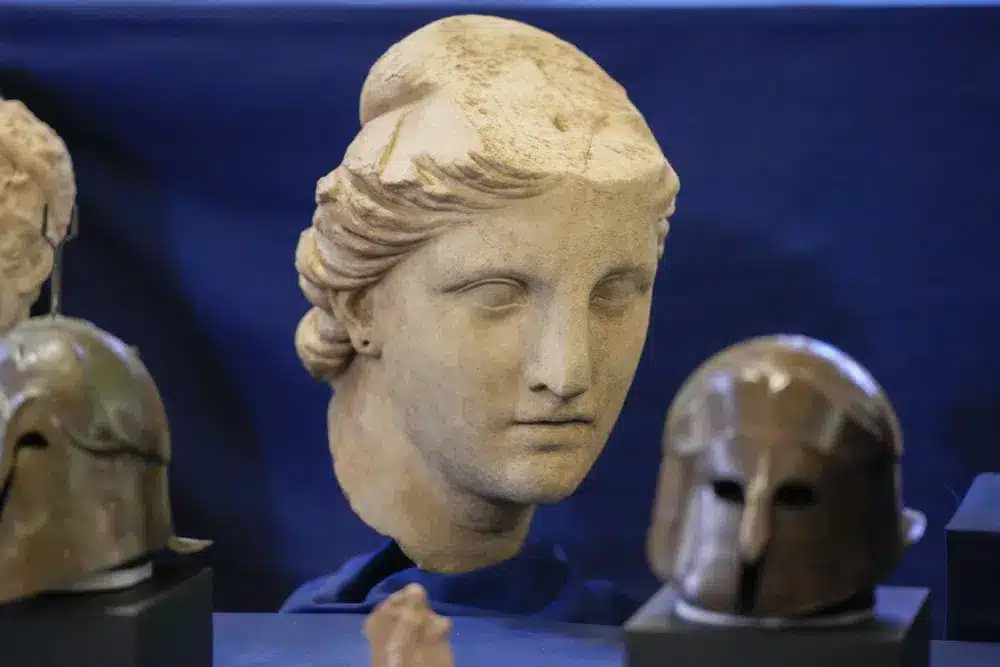ROME, Italy — A fresco depicting Hercules, originally from Herculaneum, a city destroyed along with Pompeii by Mount Vesuvius’ eruption in 79 A.D., was returned to Italy on Monday, along with 59 other ancient pieces illegally trafficked to the United States.
Last summer, U.S. authorities announced that the fresco and dozens of other trafficked objects that had ended up in private collections in the U.S. would be returned to Italy.
A B.C. kylix, or shallow two-handled drinking vessel, some 2,600 years old, was among the more valuable pieces Italian and U.S. officials displayed to journalists in Rome. A sculpted marble head depicting the goddess Athena from the 2nd century B.C. has also been returned.
According to Italy, the returned works are worth more than $20 million (18 million euros).
Pieces Sold By Italy Art Dealers
The fresco depicts Hercules as a child strangling a snake in the classic Pompeiian style.
The returned pieces had been sold by art dealers, were in private collections in the United States, and needed documentation proving they could be legally brought abroad from Italy.
Archaeological objects excavated in Italy are permitted to leave the country with permission under a 1909 Italian law if they were taken abroad before the law’s passage.
Among those in attendance on Monday was Manhattan Assistant District Attorney Matthew Bogdanos, who heads the office’s anti-illicit antiquities unit. His office collaborated on this investigation with a specialized art squad branch of Italy’s paramilitary Carabinieri.
“For Italian antiquities alone, we have conducted 75 raids and recovered over 500 priceless treasures valued at over $55 million,” Bogdanos said.
Italy Taking Back All Stolen Museum Items
Italy has been a trailblazer in reclaiming illegally exported antiquities from museums and private collections worldwide.
The country successfully relocated such ancient artworks and artifacts that it established a museum to house them. The Museum of Rescued Art opened in June in a vast structure once part of Rome’s ancient Diocletian Baths.
The Italian cultural authorities are debating whether to place the most recently returned pieces in museums near the sites where they were thought to have been excavated. Another option, according to Culture Minister Gennaro Sangiuliano, is to hold a special exhibition of the returned pieces.
Not only does Italy lose pieces of its history when artifacts are discovered in secret excavations and smuggled off to art dealers for a profit. Academic experts deprived of valuable information about the context of the area where the objects were discovered miss out on learning about past civilizations.
SOURCE – (AP)










